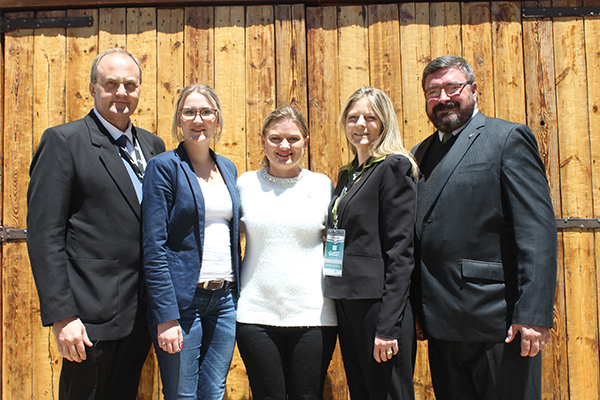
Representatives from the UFS Business School with Nick Olivier, Certified
Fraud Examiner (right), at the International Fraud Awareness Week’s
Free State Conference.
Photo: Lerato Sebe
‘Walking the Talk on Fraud Prevention’ was this year’s theme during the annual International Fraud Awareness Week’s Free State Conference held at Monte Bello, Bloemfontein, on 16 and 17 November.
The conference was hosted by the Business School of the University of the Free State (UFS), in collaboration with the Free State Provincial Treasury, Standard Bank, the Association of Certified Fraud Examiners (ACFE), and PricewaterhouseCoopers.
Detecting and taking action against corruption
The Free State MEC of Finance, Honourable Elzabe Rockman, says corruption is not only a provincial or national issue, but rather a global issue. “Through this interaction with the International Fraud Awareness Week, we reach a much broader audience, both inside and outside government.” She says this should make a direct contribution to increasing awareness of what constitutes fraud, and improving our ability to detect it and to take action.
Implications caused by fraud
One of the speakers at the seminar, Nick Olivier, a Certified Fraud Examiner (CFE), did a presentation labelled, ‘WTF – Where to focus in the corruption noise’, highlighting the impact which fraudulent crime has on companies. “With the private sector, the impact is huge because the company will have to spend money on investigations or lawyers to get their money back.” He mentions that in government, various things are affected by fraud, such as the economy, the country’s resources, the lives of citizens and the society.
“We need to start obeying the regulations which were implemented in our environments so that we do not need to do investigations, because every citizen has a duty to do the right thing,” says Olivier.
Tender procurement and bribery were listed as the top corruption crimes in both the private and government sectors.